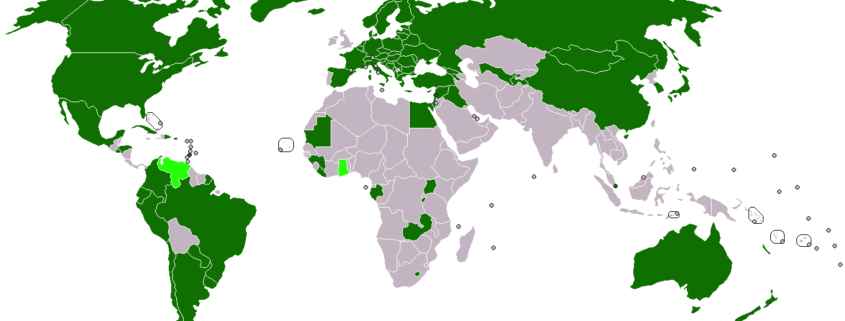CISG regularly remains unknown to contracting parties
Practice shows that the United Nations Convention on Contracts for the International Sale of Goods (CISG) regularly remains unknown to contracting parties. A recent judgment of 06 November 2019 by the District Court Noord-Nederland (https://uitspraken.rechtspraak.nl/inziendocument?id=ECLI:NL:RBNNE:2019:4743) is an example of such.
A Belgian company (‘the Buyer’) purchased a state of the art ‘LED screen’ from a Dutch company (‘the Seller’) for its new office building. The contract between the parties provided that the Seller was to install the LED screen at the premises of the Buyer. To this contract the Seller’s general terms & conditions applied. The LED screen was delivered in parts at the premises of the Buyer. According to the Buyer the LED screen was not in conformity with the contract. When the Seller also failed to install the LED screen timely, the Buyer gave the Seller written notice in which the Buyer declared the contract null and void. Subsequently the Seller promised to install the LED screen ultimately before a specific date and considered the notice in which the Buyer declared the contract null and void as withdrawn. However, the Seller again did not keep its promise. The Buyer therefore gave the Seller further notice in which the Buyer declared the contract null and void and served a writ to the Seller to appear at the District Court Noord-Nederland to pay back the purchase price of the LED screen.
The Buyer justified its claim to declare the contract null and void on four legal grounds: (1) the LED screen was not in conformity with the contract, (2) no physical installation had taken place, (3) the software of the LED screen was not installed and (4) the mere lapse of time in which the software and physical installation of the LED screen had not taken place.
The CISG applies in general to contracts of sale of goods between parties whose places of business are in different states that are a party to the CISG, such as the Netherlands and Belgium. However, the Seller argued that the CISG was not applicable on two grounds: (1) the CISG was excluded due to the choice for Dutch law in the general terms and conditions and (2) the contract between the parties had to be considered as a contract for services and not as a contract for the sale of goods. The District Court ruled that (1) the mere choice for Dutch law in the general terms and conditions does not mean that the CISG is excluded and (2) that the CISG only does not apply to contracts in which the preponderant part of the obligations of the party who furnishes the goods consists in the supply of labour or other services. In the matter at hand it was clear from the invoice of the Seller that only a small part of the contract consisted of labour or other services. Hence, the CISG applied to the contractual relationship between the parties and the case was further assessed by the District Court on the basis of the CISG.
The District Court further considered that the promise of the Seller to install the LED screen before a specific date is a strict deadline. The District Court based its decision on judgments of courts from Switzerland, Germany and the Netherlands. Therefore the second notice in which the Buyer declared the contract null and void was valid. Both parties were discharged from their obligations under the contract. This means that the Seller has to pay back the purchase price to the Buyer and the Buyer needs to return the LED screen back to the Seller. This return should take place at the premises of the buyer.
The second notice in which the Buyer declared the contract null and void was key in this matter. It is important before concluding an agreement or in case of a dispute to determine what rights a Buyer and/or the Seller have under the CISG. The assessment whether a contract can be declared null and void and the notice to declare a contract null and void must be considered and drafted carefully.
For more information, please contact:
DAAN KOMEN
Telephone : + 31 10 217 77 20
Mobile : +31 6 37 47 05 56
Email : komen@caland.nl
Whilst every care has been taken to ensure the accuracy of this information at the time of publication, the information is intended as guidance only. It should not be considered as legal advice.



